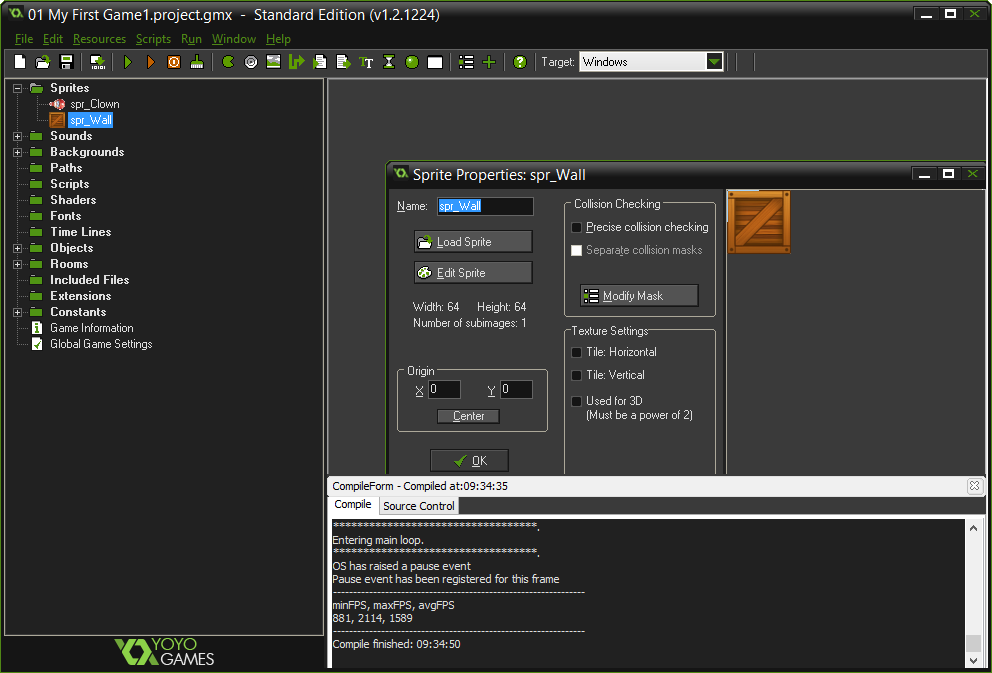
GAMEMAKER STUDIO 2 VS 1.4 CODE
GameMaker has a collection of "built in" global variables too, so you should be aware of them as you may name one of your instance variables the same or wish to have your own global variable with the same name and wonder why you are getting errors! They are easy to spot, however, as they are shown in a different colour in the code editor and also come up in the auto-complete bar at the bottom. In general you should have a single object that declares all your global variables at the very start of the game (for example, in the Room Start Event of the first object instance placed in the first room of the game) or a single script function that declares them all together, as this gives you a handy place to go back and reference everything at once should you need to check a variable name or edit a value. As with local variables you have to take care not to name your global variables the same as any instance variables as that may cause you problems and make bugs creep into your games due to variable overlap, which can be a difficult issue to debug sometimes. With global variables we can change values and see those changes reflected in all instances of the objects that reference this variable. We also have another object that draws this value like this:ĭraw_text(32, 32, "food = " + string(global.food)) For example we could have a different food object that the player collides with and in the collision event we have: Now, any instance or function can use and change this variable in any way and all other instances will "see" this. So, we have created a new variable called " food" and we have declared it as global. We will need to use this form from now on any time we are required to access or to change this variable in any way. " to tell GameMaker that this variable is now global scope. We declare the " food" variable by first writing " global" and then a ".

Essentially, a global variable does not belong to any specific instance and can be accessed, changed and used by all instances, and any changes made to the variable are "global", in that all instances using the variable will be affected by the change.
GAMEMAKER STUDIO 2 VS 1.4 UPDATE
So, you can create a global variable to keep track of (for example) the number of bullets that the player has and then just update this variable at different points in the game, form any instance or function and at any time. Just like local variables, global variables must be declared using an identifier, but unlike a local variable, a global variable remains in memory until the end of the game. A basic description of a global variable is one that, once declared, it belongs to no instance in particular and yet can be accessed by all.


 0 kommentar(er)
0 kommentar(er)
